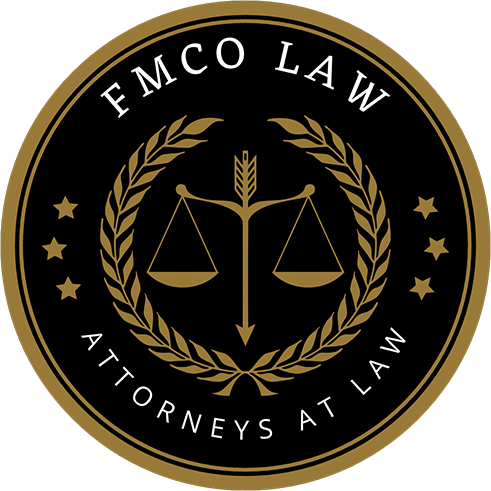Navigating The Complexities Of Wage And Hour Disputes
Wage and hour disputes are common employment issues throughout the country. There are many complexities to these disputes. Federal law covers a myriad of wage and hour issues. Additionally, Illinois has its own laws that may apply, and Chicago has local wage and hour ordinances.
It is important to consult with an experienced wage-and-hour attorney before you become entangled in a time-consuming court case that interferes with your finances and your productivity. Whether you are an employee or employer, you can rely on our team at FMCO Law. Our wage and hour attorneys will listen carefully to your story to make sure you have a viable case. Our peer-reviewed and award-winning attorneys have a track record of successfully negotiating and litigating employment cases, including wage and hour disputes. They are eager to use their talents to get you a reasonable resolution.
Services Our Knowledgeable Attorneys Will Provide
On your behalf, we will examine all relevant documents – office calendars and clock-in data, contracts, pay stubs, etc., to determine if and when inequitable treatment has occurred relative to:
- Failure to pay (or be paid) minimum wage
- Miscalculated rates of pay
- Misclassification of employees
- Failure to pay (or receive) agreed-upon commissions, bonuses or overtime
We can also address issues surrounding unpaid meal and rest breaks.
The Legal Framework For Wage And Hour Standards
Federal, state and local laws may all come into play with regard to wage and hour disputes. The U.S. Department of Labor and the Illinois Department of Labor have also issued detailed regulations that may be relevant to your dispute. Here are the major legal standards to be aware of.
The Illinois Wage Payment And Collection Act
Beyond the federal minimum wage that has remained at $7.25 for over 10 years, Illinois, like most states, has its own standard. Under the Illinois Wage Payment and Collection Act, the Illinois minimum wage, as of 2023, is $13 per hour for nontipped individuals aged 18 or over. It will be gradually raised to $15 per hour by 2025. Chicago has a higher minimum wage.
Misclassification Of Exempt Vs. Nonexempt Employees
In wage and hour disputes, the legal distinction between exempt and nonexempt employees may be unclear. Nonexempt workers are entitled to overtime pay (time and a half) when they work more than 40 hours per week. Exempt employees, however, are those who work in administrative, executive, freelance or professional positions. As exempt employees, they are salaried and paid the same amount every week, no matter how many hours they work.
Meal And Rest Breaks In Illinois
All employees who work seven-and-a-half continuous hours are entitled to meal breaks of at least 20 minutes no more than five hours after they begin their shift. While Illinois law does not require other breaks, employers are expected to allow necessary bathroom breaks.
Illegal Wage Deductions
Employers are not allowed to withhold or deduct wages until uniforms, tools or devices are returned to the employer. Employers are also forbidden to withhold earned vacation days or wages if an employee has failed to give notice or because the employee was terminated for cause.
Employers cannot deduct from wages for inventory shortages or accidental damage to company property, inventory or equipment, except if the employee signed an agreement at the time the deduction was made.
Exceptions to this rule may also be made if the employee damaged the property intentionally or through gross negligence. As a practical matter, such judgments are subjective; this makes it even more worthwhile to have a savvy wage and hour attorney at your side.
Legal Deductions From Wages
Legal deductions an employer can make from an employee’s pay include:
- Federal and state taxes (e.g. income tax, Medicare taxes, Social Security taxes, Unemployment taxes)
- Child support, if arranged by the court*
- Health care insurance, union dues, pension fees (if the employee has agreed)
*More than 75% of child support is paid through income withholding
Accidental Overpayment
If an employer has accidentally overpaid an employee, the entire amount may be deducted on the payday after the discovery of the overpayment, assuming the employee agrees. If the overpayment is discovered weeks, or even months later, it is often necessary for each party to seek legal representation to iron out a plan for repayment that is fair to both parties.
A Strong Attorney Can Help You Be On The Winning Side Of A Wage And Hour Dispute
Whichever side of a wage and hour dispute you’re on, you may feel that you are being taken advantage of. Without legal representation, you may feel helpless and incapable of arguing your side of the story persuasively. Our lawyers can make your voice heard.
Contact our team in Geneva at 630-912-5702 to schedule a consultation.

